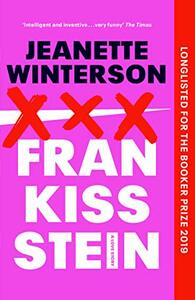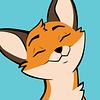Take a photo of a barcode or cover
hard to read bc of how it fails the reader. it makes you think but the content (character arcs, concepts, symbolism) leaves much to be desired. i did enjoy reading from Mary Shelly’s perspective and I wish she had written an autobiography </3
Overall I loved reading this book: the essential questions about the future of AI, the fictionalised history of Mary Shelley, the jokes which occasionally made me laugh out loud.
But one thing made me really uncomfortable: can a cis gendered author write a respectful story about a trans person? I can see why Ry is trans, but I can also see his character would be highly offensive for a lot of trans people, including some harmful passages.
Furthermore, it came to my attention that Winterson would prefer trans teens not to get the healthcare they need (https://www.reuters.com/article/us-britain-lgbt-books/no-rush-to-change-gender-uk-writer-joins-trans-debate-idUSKCN1T028R). Her writing about trans experiences is highly problematic if she has this view.
But one thing made me really uncomfortable: can a cis gendered author write a respectful story about a trans person? I can see why Ry is trans, but I can also see his character would be highly offensive for a lot of trans people, including some harmful passages.
Furthermore, it came to my attention that Winterson would prefer trans teens not to get the healthcare they need (https://www.reuters.com/article/us-britain-lgbt-books/no-rush-to-change-gender-uk-writer-joins-trans-debate-idUSKCN1T028R). Her writing about trans experiences is highly problematic if she has this view.
What a strange and interesting remix on Frankenstein. Jeannette Winterson has spent her career questioning ideas of sex, gender, and identity and she does so now through the frame of Mary Shelley's classic, Frankenstein. We follow Shelley as she dreams up Frankenstein and we move to a speculative period where a trans doctor named Ry falls in love with Victor Stein, and we also meet Victor Frankenstein as a character in Shelley's story. It's a weird book, but it (mostly) works. It has certainly made me wish to revisit the original tale.
dark
emotional
funny
reflective
tense
medium-paced
Plot or Character Driven:
A mix
Strong character development:
No
Loveable characters:
Complicated
Diverse cast of characters:
Complicated
Flaws of characters a main focus:
No
I have mixed feelings about this one. Parts of it I really loved, especially the writing style. However, the story got more and more abstract as it progressed, to the point where I had no idea what the hell was going on by the end of it. Also some of the trans representation wasn't handled super well. Overall, I'd give it 2.5 stars.
Couldn't do it.
I was feeling under the weather and this was not the book I needed. It is absolutely florid in its language, ridiculously so IMO.
I'll give you a quote from the first few pages of the book. Mary Shelley has decided to walk naked across the chilly and rainy shore of Lake Geneva, as you do. There is a bit of explicit discussion of body parts, so here's your chance to avoid that if you aren't interested.
"...though I am not an inventor of machines I am an inventor of dreams.
Yet I wish I had a cat.
... My nipples are like the teats of a rain-god. My pubic hair, always thick, teems like a dark shoal. The rain increases steady as a waterfall and me inside it. My eyelids are drenched. I'm wiping my eyeballs with my fists.
Shakespeare. He coined that word: eyeball. What play is it in? Eyeball?"
That is the stream of consciousness nonsense I read and I was not up for it. I don't want to read about teats like a rain-god or similar metaphors. YMMV.
I was feeling under the weather and this was not the book I needed. It is absolutely florid in its language, ridiculously so IMO.
I'll give you a quote from the first few pages of the book. Mary Shelley has decided to walk naked across the chilly and rainy shore of Lake Geneva, as you do. There is a bit of explicit discussion of body parts, so here's your chance to avoid that if you aren't interested.
"...though I am not an inventor of machines I am an inventor of dreams.
Yet I wish I had a cat.
... My nipples are like the teats of a rain-god. My pubic hair, always thick, teems like a dark shoal. The rain increases steady as a waterfall and me inside it. My eyelids are drenched. I'm wiping my eyeballs with my fists.
Shakespeare. He coined that word: eyeball. What play is it in? Eyeball?"
That is the stream of consciousness nonsense I read and I was not up for it. I don't want to read about teats like a rain-god or similar metaphors. YMMV.
mysterious
reflective
medium-paced
Plot or Character Driven:
Character
Strong character development:
Complicated
Loveable characters:
Yes
Diverse cast of characters:
Yes
Flaws of characters a main focus:
Complicated
Multiple perspective storyline that follows Mary Shelley, and several characters in the near future as they all grapple with questions like what does it mean to be human, what is the next stage in our evolution, and what would a post-human age look like.
Interesting concepts, but I prefer my fiction with a little more plot and less pretentious philosophical musings.
Interesting concepts, but I prefer my fiction with a little more plot and less pretentious philosophical musings.
Weer een gevalletje niet helemaal gelukte expectation management...
Twee verhaallijnen (een in het verleden, een in het heden) door elkaar verweven, over de maakbaarheid van leven, kunstmatige intelligentie, de noodzaak voor een lichaam.
Het deel dat gaat over Mary Shelley en Frankenstein is veruit het beste deel. Het deel dat in het nu speelt is mij veel te gekunsteld (hoezo "show, don't tell" met de namen van de hoofdpersonen?) en de karakters eigenlijk allemaal niet erg likable.
Als het boek zo ongeveer geeindigd was bij Ada Lovelace (met dat stuk misschien nog wat verder uitgewerkt) was het een beter boek geweest, met voldoende stof tot nadenken. Daarna dan "Fall; or, Dodge in Hell" lezen om verder na te denken wat een leven zonder lichaam zou kunnen voorstellen.
Twee verhaallijnen (een in het verleden, een in het heden) door elkaar verweven, over de maakbaarheid van leven, kunstmatige intelligentie, de noodzaak voor een lichaam.
Het deel dat gaat over Mary Shelley en Frankenstein is veruit het beste deel. Het deel dat in het nu speelt is mij veel te gekunsteld (hoezo "show, don't tell" met de namen van de hoofdpersonen?) en de karakters eigenlijk allemaal niet erg likable.
Als het boek zo ongeveer geeindigd was bij Ada Lovelace (met dat stuk misschien nog wat verder uitgewerkt) was het een beter boek geweest, met voldoende stof tot nadenken. Daarna dan "Fall; or, Dodge in Hell" lezen om verder na te denken wat een leven zonder lichaam zou kunnen voorstellen.





